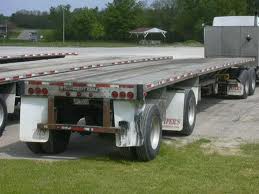How do Auto Shippers Transport Large Pickup Trucks?
 Like with any standard car or small sport utility vehicle, auto shippers can ship most pickup trucks on a regular ten-car carrier, but there are those that just can’t fit on the back of a standard car shipping carrier, and these are the types of pickup trucks that we’re going to be discussing in today’s article.
Like with any standard car or small sport utility vehicle, auto shippers can ship most pickup trucks on a regular ten-car carrier, but there are those that just can’t fit on the back of a standard car shipping carrier, and these are the types of pickup trucks that we’re going to be discussing in today’s article.
Pickup trucks, by their very nature, are more expensive to ship than a standard car because of the additional size and weight. Weight plays a more important role in determining your price than the size of the vehicle, but generally they go hand in hand; typically, the larger the vehicle, the heavier it is.
Weight is important because it affects fuel economy on the transportation truck and more weight can mean less vehicles on a given load due to government weight restrictions on commercial vehicles.
As mentioned, most pickup trucks fit on a standard carrier. Most anything you can get from a dealership, including many of the “Heavy Duty” trucks out there, will fit on a standard carrier – that’s typically how they get to dealerships in the first place.
Trucks that will likely need alternative methods of transport include HD duly trucks and those that are lifted or modified to be taller, wider or heavier than their standard stock counterparts. Lifted trucks are especially difficult to ship, especially if they’re lifted over a couple of inches – it’s the height more than anything.
As many of them also have oversize tires, that also plays a role. Lifted trucks are taller, and can cause standard shippers to go over the height restrictions inherent in the underpasses of the United States (and there are like…thousands out there). Can you imagine transporting a lifted truck and then having it scrape the underside of an overpass outside of Kentucky because it was too high? That’s a liability no carrier wants, so they just don’t ship those types of vehicles.
Instead, they leave it to the flatbed carriers to handle. This is where the insanely high price for oversize pickups and lifted trucks is explained. If a standard shipper can’t transport a really tall truck, flatbed carriers are going to have to. They’re basically just larger flatbed tow trucks in that they load, unload, secure and transport in basically the same ways.
Flatbed shippers are few and far between, however; they have some of the lowest numbers in terms of auto transport method on the road today that their prices are significantly higher than those of open auto transporters. However, the price is justifiable considering what they’re able to ship (hint: it’s a lot more than just lifted pickups), and the auto transport industry isn’t cheap even for the cheapest method.
If you’re interested in getting quotes to ship your vehicle, be it a Ford Tempo or a Chevrolet Silverado 3500 HD Duly, you can fill out our free online quote request form and get a free quote from us immediately. You can also call us toll-free at 800-930-7417 to speak to one of our live customer service representatives, who can answer your questions and help you get your free quote today.
- When to go with an Enclosed Transport - October 2, 2023
- Understanding California’s EV Mandate - August 1, 2023
- Top Reasons Auto Shippers Are Delayed - January 9, 2023

